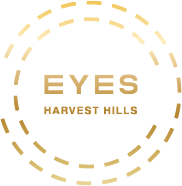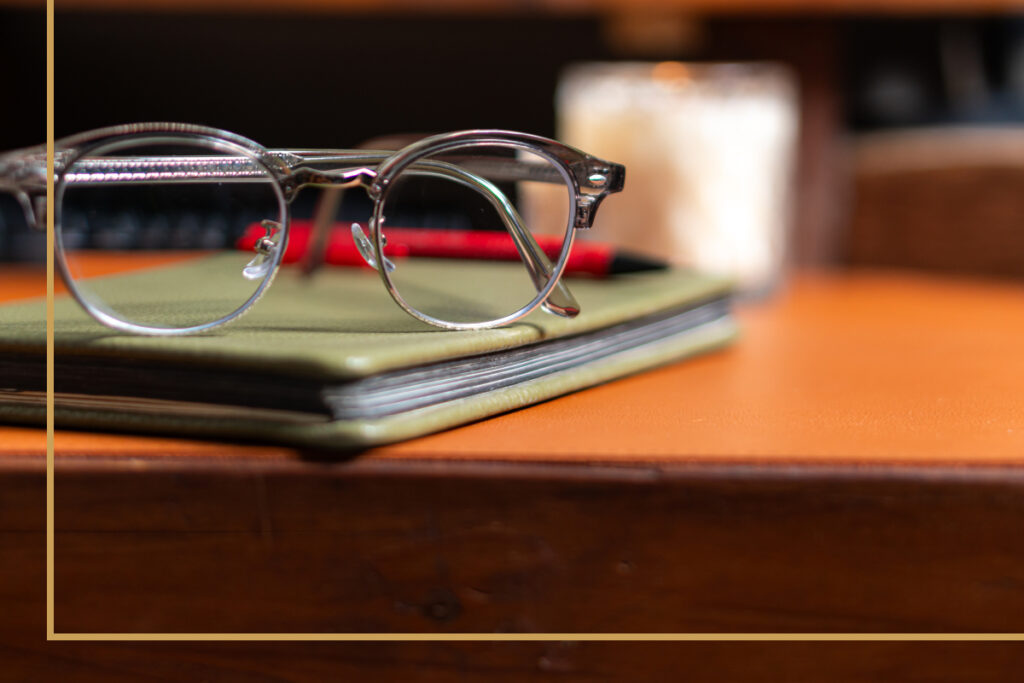Autumn in Edmonton is a season many people look forward to—the crisp air, colourful leaves, and cozy routines. But for those prone to seasonal allergies, fall can bring more than just scenic views and warm drinks. This time of year is often filled with itchy, watery, and irritated eyes that can make it difficult to enjoy everyday activities.
At Eyes Harvest Hills, we know that seasonal allergies don’t just affect your nose; they can also disrupt your vision comfort. By understanding what triggers these symptoms and learning how to protect your eyes, you can make fall a season to enjoy, rather than endure.
Understanding Autumn Eye Allergies
Eye allergies, also known as allergic conjunctivitis, occur when your immune system overreacts to allergens, particles that are usually harmless but mistakenly seen as a threat. When allergens like pollen, mould spores, or dust land on your eyes, your immune system releases histamines. This response causes swelling, redness, itching, and watery eyes.
While these reactions aren’t dangerous for your eyesight, they can make it uncomfortable to read, drive, work, or spend time outdoors. For contact lens wearers, allergens can also stick to the surface of lenses, making symptoms even more noticeable.
Common Seasonal Triggers in Fall
Many people associate allergies with spring pollen, but fall has its own unique set of triggers. The most common culprits in Edmonton and across Alberta include:
Ragweed Pollen
Ragweed plants release pollen in late summer and fall. Even if you don’t see ragweed nearby, its lightweight pollen can travel for hundreds of kilometres. This means that on windy autumn days, pollen counts can spike and trigger symptoms for sensitive eyes.
Mold Spores
Falling leaves and damp conditions provide the perfect breeding ground for mould. Piles of leaves in yards, gardens, and parks can become hotspots for spores that irritate the eyes when released into the air. Indoor mould, especially in basements or around heating systems, can also worsen allergies.
Dust and Indoor Allergens
As the weather cools, most of us spend more time indoors. Dust mites, pet dander, and particles from heating systems can increase exposure to allergens inside the home. For many people, this means allergy symptoms can continue long after they’ve left outdoor triggers behind.
Symptoms of Fall Eye Allergies
It’s not always easy to tell whether allergies, dry eye syndrome, or an infection causes your eye irritation. Here are the most common allergy-related symptoms:
- Itchy eyes – A hallmark symptom that usually worsens when you rub them.
- Redness – Blood vessels expand, making your eyes appear bloodshot.
- Watery eyes – Excessive tearing as your body attempts to flush out allergens.
- Burning or stinging – A sensation that makes it difficult to keep your eyes open comfortably.
- Swelling of the eyelids – Puffiness around the eyes, especially after exposure to allergens.
- Light sensitivity – Bright lights may feel uncomfortable when your eyes are already irritated.
If you’re experiencing these symptoms, it’s a good idea to pay attention to when and where they occur. If they flare up outdoors or when the furnace kicks on, allergies are likely the contributing factor.
How Allergies Affect Your Vision Comfort
Although allergies don’t directly damage your vision, the irritation can still interfere with your daily activities. Students may find it difficult to concentrate on reading, while adults may struggle with computer work or driving when eyes are constantly watering. For contact lens wearers, allergens sticking to the lenses can reduce clarity and make lenses feel gritty.
Allergy symptoms can also overlap with dry eye syndrome, which is common in fall and winter due to drier indoor air. This makes it even more important to see your optometrist for a professional evaluation so you can find relief tailored to your specific needs.
Practical Tips to Protect Your Eyes
While you can’t avoid allergens completely, there are simple steps you can take to reduce exposure and keep your eyes more comfortable during allergy season.
Limit Exposure on High-Allergen Days
- Check pollen forecasts and try to stay indoors when counts are high.
- Keep windows closed on windy days to prevent pollen and mould spores from entering your home.
- Shower and change clothes after spending time outdoors to remove lingering allergens.
Shield Your Eyes
- Wear sunglasses outdoors – Not only do they protect your eyes from UV rays, but they also act as a barrier against airborne allergens.
- Wide, wraparound styles provide extra protection.
Improve Indoor Air Quality
- Use a HEPA filter in your home to reduce airborne particles.
- Change furnace filters regularly, especially at the start of the heating season.
- Reduce mould by keeping basements dry and cleaning damp areas promptly.
Contact Lens Care
- Allergens can cling to contact lenses, intensifying discomfort.
- Consider switching to daily disposable lenses during allergy season to minimize buildup.
- If you wear reusable lenses, be diligent about cleaning them and using fresh solution daily.
Soothing Relief at Home
- Use preservative-free lubricating eye drops to flush out allergens and hydrate your eyes.
- Apply a cool compress over closed eyes to relieve itching and swelling.
- Avoid rubbing your eyes—though tempting, it releases more histamines and worsens irritation.
Professional Care Makes a Difference
Sometimes at-home measures aren’t enough, especially if your allergies are severe or persistent. This is where professional eye care comes in.
At Eyes Harvest Hills, we can:
- Differentiate between allergies and other conditions like dry eye syndrome or infections.
- Recommend or prescribe medicated eye drops designed specifically for allergy relief.
- Help you find the best contact lens option to minimize buildup and discomfort.
- Provide strategies to protect your vision comfort through every season.
The right treatment depends on your lifestyle, whether you wear contacts, and how severe your symptoms are. Our team is here to create a plan that works for you.
When to Book an Appointment
While mild allergy symptoms can often be managed with simple steps, you should book an eye exam if:
- Your symptoms interfere with reading, working, or driving.
- Over-the-counter drops don’t provide relief.
- You experience blurred vision or pain in addition to irritation.
- Your symptoms continue beyond allergy season.
Eye exams are also an opportunity to rule out other issues. What may feel like allergies could sometimes be dry eye syndrome, blepharitis, or even an infection—conditions that require different care.
Enjoy Fall with Clearer, More Comfortable Eyes
Autumn in Edmonton should be a season to enjoy, not a time to battle constant irritation. By taking proactive steps and working with your optometrist, you can protect your eyes from allergens and focus on the beauty of the season.
At Eyes Harvest Hills, our goal is to keep your eyes healthy and comfortable all year long. Whether you’re struggling with allergies, dry eyes, or vision changes, we’re here to help.
Don’t let fall allergies stand in the way of clear and comfortable vision. Schedule your eye exam with Eyes Harvest Hills today and let us help you find relief that lasts through the season and beyond.

